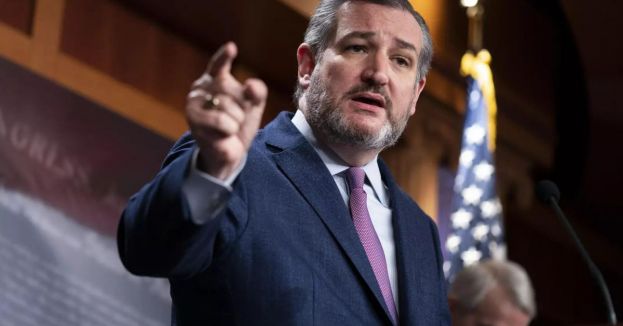The issue derives from Cruz’s 2018 senate campaign, which was then the most expensive senate race in the history of the state of Texas. During that campaign, Cruz donated $260,000 to his campaign. By the time the campaign was able to repay the loan, using additional fully, post-election raised funds, the period during which it was acceptable to repay more than $250,000 had passed, and Cruz was only repaid $250,000.
“The 6-3 decision today at the Supreme Court is a resounding victory for the First Amendment,” said a Cruz spokesperson. “Sen. Cruz is gratified that the Supreme Court ruled that the existing law imposed an unconstitutional restriction on free speech that unfairly benefited incumbent politicians and the super-wealthy. This landmark decision will help invigorate our democratic process by making it easier for challengers to take on and defeat career politicians.”
WATCH: "WE WILL OPEN YOU UP LIKE A SOFT PEANUT"![]()
This left $10,000 that Cruz had loaned his campaign unpaid. The majority, 6-3 opinion, penned by Chief Justice Roberts, concluded that “the bar on repayment injures the Committee [to reelect Cruz] by preventing it from discharging its obligation to repay its debt, which may inhibit that form of financing in the future.”
WATCH: HOW WAS JURY SELECTION HANDLED IN TRUMP'S TRIAL?![]()
Backing the majority were Chief Justice Roberts, along with justices Kavanaugh, Barrett, Thomas, Gorsuch, and Alito.
A LOOK INSIDE DEMOCRATS' PLAN TO WIN BACK THE HOUSE WITH RECORD INVESTMENT![]()
Roberts further said that “we must assume that the loan repayment limitation—including the 20-day rule—unconstitutionally burdens speech.”
In conclusion, the opinion states: “For the reasons set forth, we conclude that Cruz and the Committee have standing to challenge the threatened enforcement of Section 304 of BCRA. We also conclude that this provision burdens core political speech without proper justification. The judgment of the District Court is affirmed.”
ICE BLUNDER: AFGHAN NATIONAL SUSPECTED OF TERROR TIES ESCAPES U.S. TRACKING PROGRAM IN DAYS...![]()
The minority dissent, followed by Justices Kagan, Breyer, and Sotomayor, offered concern that paying a candidate back a loan of personal funds post-election with funds raised post-election opens that candidate up for corruption and influence peddling.
DEMS' LAST-MINUTE BID TO SAVE SEATS AMID SOUTHERN BORDER TURMOIL!![]()
They write that “A candidate for public office extends a $500,000 loan to his campaign organization, hoping to recoup the amount from benefactors’ post-election contributions. Once elected, he devotes himself assiduously to recover the money; after all, his personal bank account now has a gaping half-million-dollar hole. The politician solicits donations from wealthy individuals and corporate lobbyists, making clear that the money they give will go straight from the campaign to him, as repayment for his loan.”







 Discover alternative ideas that will make you think
Discover alternative ideas that will make you think Engage in mind bending debate
Engage in mind bending debate Earn points, rise in rank, have fun
Earn points, rise in rank, have fun


